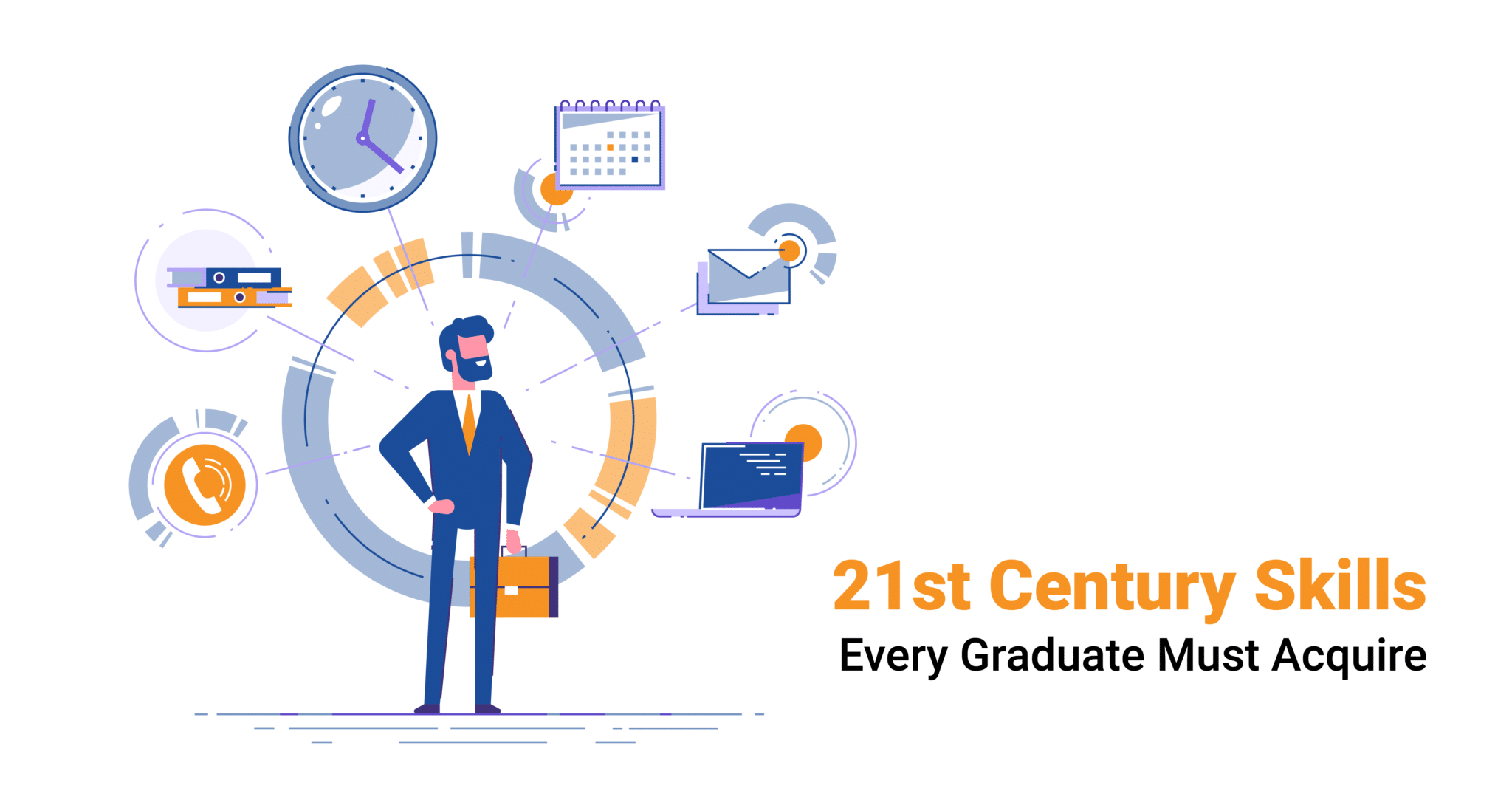The need for new skillset in the 21st Century
Today’s world is completely different from what it was decades ago. A century back, it was hard to imagine the kind of technology, work environment and gadget-enabled interactions we have today. This is called progress, and any civilisation that isn’t progressing fast enough runs the risk of obsolescence and eventual extinction. Progress is driven by mankind, and at every stage of evolution, be it biological or technological, certain set of skills are required to propel the change.
This is the burden on the hands of employers, parents and academia. Graduates, especially those in developing countries like Ghana, are not being equipped adequately and fast enough to become relevant in today’s workplace. The gap between the skills people learn in schools and the skills they need to succeed at work is becoming more obvious, as traditional learning falls short of equipping students with the knowledge they need to get employed.
Today’s students will graduate into a world where the demands of our professional, personal and public lives grow more complicated every year. Graduates will be rewarded in the job market for their creativity, complex problem-solving skills, quick on-the-job learning and comfort with technology.
Today’s graduates will work with colleagues right in their city or across the globe. They must develop competencies in online collaboration tools. Online tools and technologies are blurring national and international borders, and being citizens of a global community will require strong multicultural work ethics and development of the right social and emotional learning skills. People and companies now transact in two dimensions; online and physical. The 21st Century graduate must develop skillsets that enable a seamless transition into both realms, and to engage in meaningful interaction or proper functioning.
What are 21st century skills? Who defines these skills?
According to the Glossary of Education Reform, a website dedicated to discussing reform concepts being discussed by educators, researchers and policymakers, “the term 21st century skills refers to a broad set of knowledge, skills, work habits, and character traits that are believed—by educators, school reformers, college professors, employers, and others—to be critically important for success in today’s world, particularly in collegiate programs and contemporary careers and workplaces”.
There is no clear cut agreement from academia, policy makers and researchers on the exact definition of these critical skills that should be developed. However, they all pretty much agree on three broad areas graduates should develop to be able to fit into the modern work environment. These are learning skills, literacy skills and life skills.
The full list of 21st century skills according to the Glossary of Education are:
- Critical thinking, problem solving, reasoning, analysis, interpretation and synthesizing information
- Research skills and practices, interrogative questioning
- Creativity, artistry, curiosity, imagination, innovation and personal expression
- Perseverance, self-direction, planning, self-discipline, adaptability, initiative
- Oral and written communication, public speaking and presenting, listening
- Leadership, teamwork, collaboration, cooperation, facility in using virtual workspaces
- Information and communication technology (ICT) literacy, media and internet literacy, data interpretation and analysis, computer programming
- Civic, ethical, and social-justice literacy
- Economic and financial literacy, entrepreneurialism
- Global awareness, multicultural literacy, humanitarianism
- Scientific literacy and reasoning, the scientific method
- Environmental and conservation literacy, ecosystems understanding
- Health and wellness literacy, including nutrition, diet, exercise, and public health and safety.
The World Economic Forum succinctly groups these skills into top 10 skills that would be highly sought after in the 21st Century, in order of importance:
- Complex Problem Solving Skills
- Critical Thinking
- Creativity
- People Management
- Coordinating with Others
- Emotional Intelligence
- Judgement and Decision Making
- Service Orientation
- Negotiation
- Cognitive Flexibility
Why are these skills important for you
In the future, complex problems that we cannot conceive of right now will be everywhere. Think of virtual reality, machine assisted learning, advanced robotic, self-driving cars, personal flying objects, wireless electricity transmission etc. This list is not the least exhaustive. Can you even begin to image the opportunities as well as the complexities involved in managing complex interconnected systems all around the globe, just from your computer? The potential and opportunities of the future of work are overwhelming. Think of a medical doctor in Accra carrying out a C-section operation on a patient in Bolgatanga, all through the power of robotics and virtual reality. Do you think today’s medical doctors in Ghana have this service orientation to manage robots and complex technology? Good.
Just to prick your mind into the world that technology is creating in the near future, think of WhatsApp, Skype, and Facebook, which allows us to communicate instantly with anyone in any part of the world. Through these technology-enabled applications, hundreds of thousands of new job roles, previously unimagined, have sprung up and opened up opportunities for wealth creation. Those working in technology startup business are already having a brush with the potential impact of technology to work. For example, many of the startup companies in Ghana like Jobberman and Cheki have sister companies in other parts of Africa. These companies rely heavily on collaboration and task scheduling tools like slack and trello to function seamlessly. People working in these startups must possess at least, five of the above listed skills (complex problem-solving skill, coordination with others, service orientation, judgement and decision making, and creativity) to be able to function properly.
Unfortunately, our educational system is stuck in the pre-colonial method of imparting knowledge, and the few institutions pushing forward in catching modern trends are still far from being on the brink of technology. This is not to say that learning classicals at the University for instance is a complete waste of time, but the overarching impact that education must have on the immediate environment should rank prime in the curricular of institutions, especially the universities.
With the proliferation of internet, the doors to unlimited knowledge acquisition are eternally open. There are a couple of websites dedicated to providing in-depth knowledge on these skills and the required modules of study to acquire them. There are websites, apps and games that offer brain exercises targeted at developing critical thinking, cognitive and complex problem solving skills, among others. Every graduate must make the conscious effort to acquire at least 5 of these skills. By taking one skill at a time and developing it very well, you will be way ahead of your peers in a relatively short period of time, and your chances of landing a job will skyrocket.
What are your thoughts on the various skills highlighted above? See you in the comments section below.





